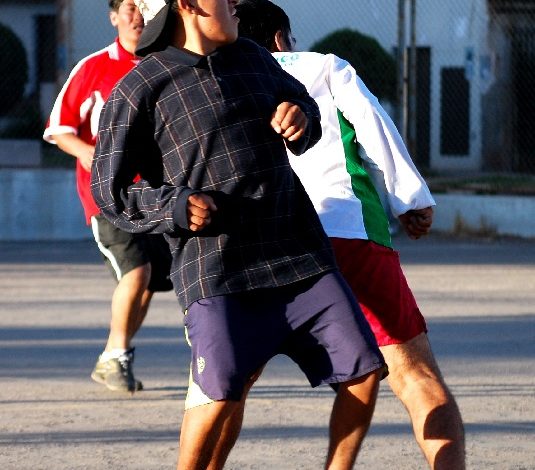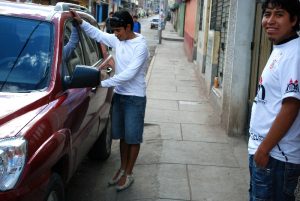“Cholo Soy” (I am a Cholo) Today

A song riffs from headphones and cafes. It bounces softly, rhythmically, almost hypnotically. Most of its words repeat one phrase over and over, a mantra of identity that speaks deeply in this ancient city with a Spanish covering. It simply says “cholo soy”, I am a Cholo.
This version of the classic song of that name by coastal crooner Luís Abanto Morales pares down the original poem of pain and anger to its root, a claim to a culture and an identity. While Morales poem celebrates the rural, mountain origins of Cholos, this version by Jaime Cuadra places the identity of Cholo in a world of electronica and dance music.
Ear phones, MP3 Players, and discotheques claim the contemporary Cholos as much as rural towns and small cities owned their elders depicted in the stunning work of Cuzco’s late poet Luis Nieto Miranda.
These are women and men who use the word “Cholo” as filler in sentences when they talk with their friends and relatives. The word builds an immediate solidarity when they say things like “ya cholo. Mañana hablamos.” (OK, Cholo. We’ll talk tomorrow). It still feels like a racial or ethnic word, yet it is becoming as neutral as the Argentine “che”. Or so it seems.
Despite the ease with which the word is slung where other words could go, such as wayki, huevón, brother, men, causa, and so on, it still has the edge that made it so important as an affirmation when El Cholo Nieto claimed it for himself.


For example, people do not use the word interchangeably with all the others. “Cholo” requires some basic, pre-existing solidarity among the speakers. You use it with friends and relatives, not strangers or age mates.
To test this, I asked my friends how it would sound if I–a North American of European descent–used the word in my conversation with them. Almost universally I was told it would be wrong and would not sound right. I am not Peruvian, not am I Cholo. As a result it would sound condescending and even insulting, like the word “cholo” in nearby Bolivia.
There the word is almost banned because of how strong an insult it is, though it has much of the same history as the word in Peru. Its only acceptable appearance appears in the description for the women who wear broad, pleated skirts, and then only in the diminutive, “cholita”.
A Cholo was a person who came from the spaces of society in between the pure, preferred spaces. He or she was not a traditional community member, speaking Quechu, dressing in homemade dress, and living in close proximity to the the Apus, the Mountain deities, and in ayni (reciprocal relationships) with each other. Instead he or she was from the towns and edges of the cities.
Initially, formal society distrusted the Cholo and there is a literature arguing the cholo is emotionally and socially unstable, untrustworthy, as if the social marginality–someone who did not fit into the clean lines of categories in a caste society where Indian and Decent People (gente decente) were carefully defined. The INdians had their categorical space–in rural communities–and the Spanish their’s in the spaces of the city from which civility took its name.

Although things were never this neat, the Cholo as someone between was a problem. The people on whom this label was applied, in Peru where books were written worrying about the cholification of the cities as rural people moved to them, turned it around and claimed it as a label of self affirmation. They were like minorities elsewhere who also took the negative labels applied them and gave them a positive, in group spin, though outsiders could still use the terms to wound.
While Abanto Morale’s song continues this rural origin and extend the term to include all kinds of rural people, as if the word serrano (highlander) were a synonym of Cholo, the electronica version by Jaime Cuadra continues the evolution into something more neutral, almost a synonym of Peruvian (despite a recitation of and edgy part of the original), where highlander becomes the prototype of the nation. The quote claims that and extends it, by reminding of a history where others, the Euro-Peruvians–many of whom now also refer to friends and themselves as Cholo–were exploiters and therefore outsiders.
Cholo grows as an important word in Peru. In the bounce of the new “Cholo Soy” it forcefully claims contemporaneity and the world of the market and progress, all the while reworking Peruvian history. Great meaning sticks to this song as it jumps from earphone to earphone, or even when wordlessly it plays as background in restaurants, airports, bus terminals, and especially hamburger franchises and chicken shops.




